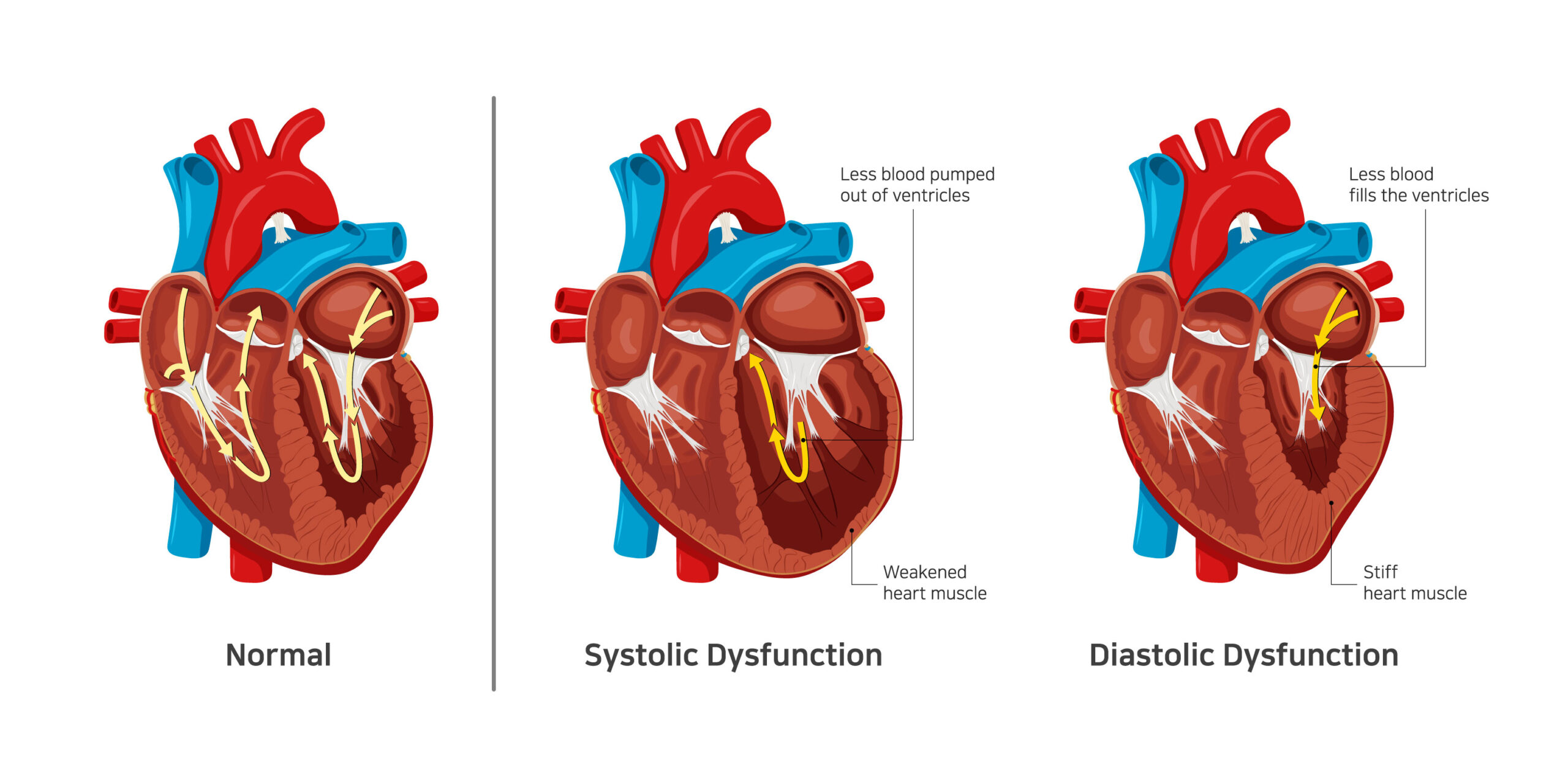
According to the CDC, 6.2 million adults in the United States have heart failure. So, understanding congestive heart failure or heart failure could mean the difference between life and death. The term “heart failure” can be somewhat misleading. CHF is a serious condition, but it does not mean that the heart has stopped beating. Congestive heart failure is diagnosed when the heart is unable to pump adequate amounts of blood to meet the demands of your body’s organs. With heart failure, blood often backs up and fluid can build up in the lungs, causing shortness of breath.
Below is a helpful graphic showing what happens with congestive heart failure. A normal heart on the left and congested heart dysfunctions on the right.

Congestive Heart Failure Symptoms
Heart failure can be ongoing (chronic), or it may start suddenly (acute). The signs and symptoms may include:
· Shortness of breath with activity or when lying down
· Fatigue and weakness
· Swelling in the legs, ankles and feet
· Rapid or irregular heartbeat
· Reduced ability to exercise
· Persistent cough or wheezing with white or pink blood-tinged mucus
· Swelling of the belly area (abdomen)
· Very rapid weight gain from fluid buildup
· Nausea and lack of appetite
· Difficulty concentrating or decreased alertness
· Chest pain if heart failure is caused by a heart attack
Risk Factors for Heart Failure
Certain medical conditions can increase your risk for heart failure, including
· Coronary artery disease (CAD)
· Diabetes
· Obesity
· Other Conditions Related to Heart Disease
Unhealthy behaviors can also increase your risk for heart failure, especially for people who have one of the conditions listed above. Unhealthy behaviors include:
· Smoking tobacco
· Eating foods high in fat, cholesterol, and sodium
· Not getting enough physical activity
· Excessive alcohol intake
If you think you might be experiencing signs or symptoms of heart failure, contact Southwest Cardiac Associates. Our cardiologists know the importance of a timely evaluation and early diagnosis. At Southwest Cardiac Associates, we provide our patients with the highest quality of medical care based on state-of-the-art cardiovascular diagnosis, treatment, and prevention. Our goal is to help you understand the disease and help you maintain a healthy lifestyle to manage the disease. Call 972-226-0505 to set up an appointment with one of our providers.
Lastly, it’s imperative to know the difference between heart failure, a serious condition and a possible heart attack, an emergency situation. You should call 911 or emergency medical help if you have any of the following symptoms of a heart attack:
· Chest pain
· Fainting or severe weakness
· Rapid or irregular heartbeat associated with shortness of breath, chest pain or fainting
· Sudden, severe shortness of breath and coughing up white or pink, foamy mucus